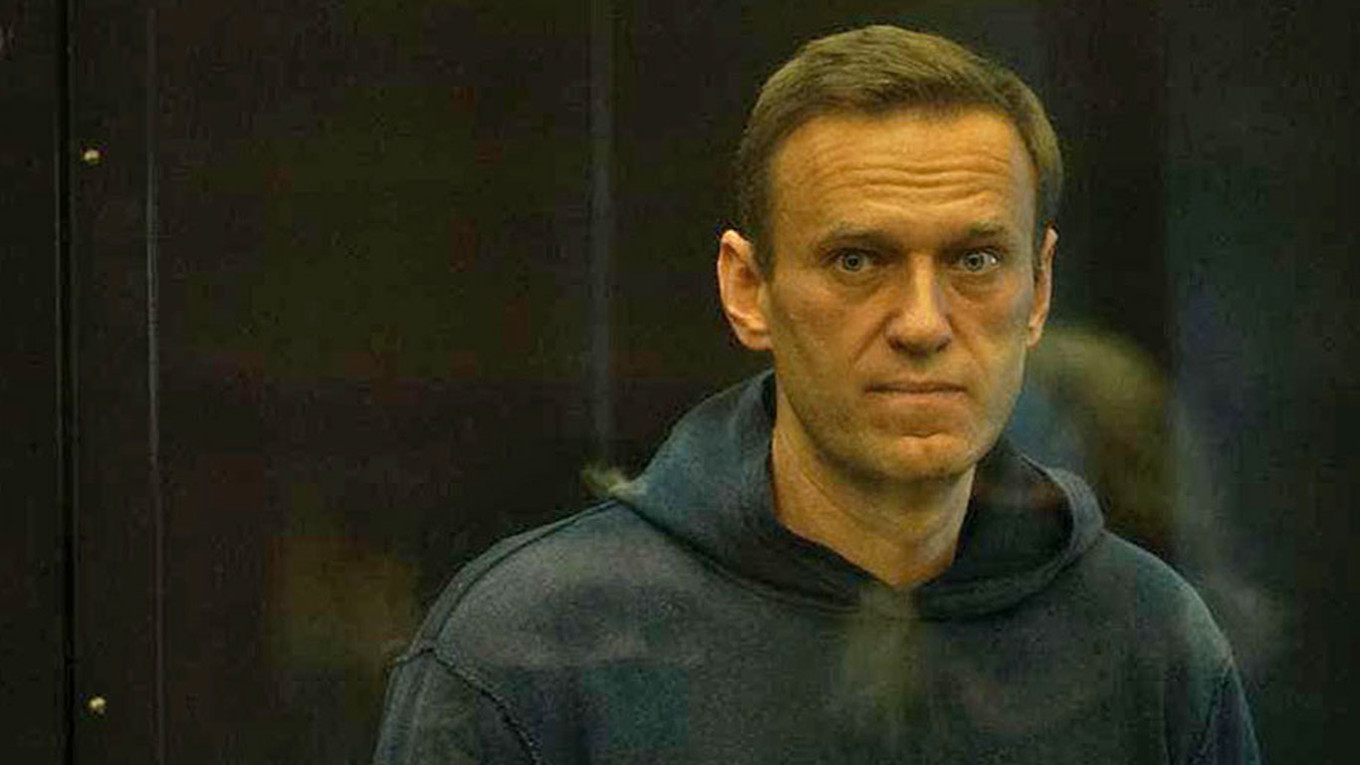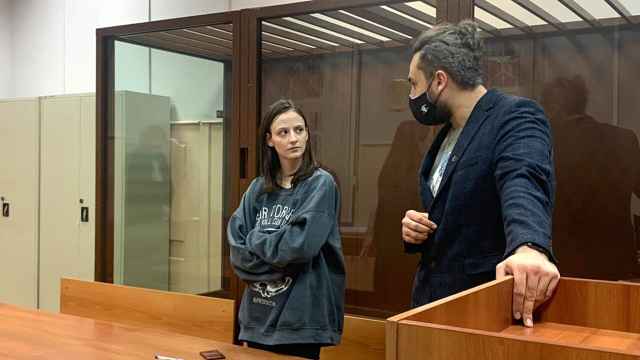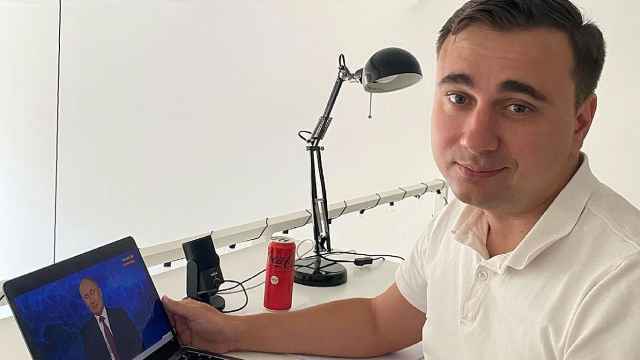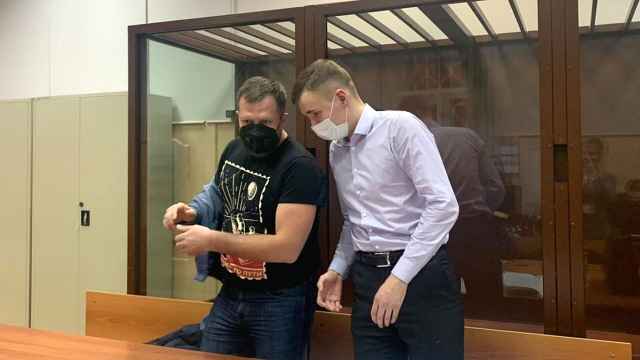Jailed Kremlin critic Alexei Navalny said Monday he had been placed in a punishment cell following his efforts to create a labor union in jail.
Navalny is serving a nine-year prison sentence in a strict regime penal colony near the Russian town of Vladimir on embezzlement charges that he and his allies say are politically motivated.
"Greetings from solitary confinement," Navalny wrote on his social media, saying that officially he was placed in an isolation cell for breaking the dress code and unbuttoning the top button of his prison robe.
He said he will remain in confinement for three days, but prison authorities warned that it could "become my permanent residence" unless "I reconsider my attitude."
Navalny described his cell as a tiny "concrete kennel" where it is "very hot and there's almost no air."
"There's only a mug and a book in my cell. I only get a spoon and a plate at mealtimes," he said.
An iron bunk is lowered from outside using a lever in the evening and put away early in the morning when they take away your mattress and pillow, he said.
"No visits, no letters, no parcels. This is the only place in the prison where even smoking is prohibited," he added.
Last week, Navalny announced that he created a one-man labor union in the penal colony where he works by sewing.
While the labor union achieved the first victory — the stools used by inmates working at sewing machines were replaced with chairs — Navalny said he received warnings from the prison administration.
Navalny had been serving two-and-a-half years for violating parole on old fraud charges but in March his jail time was extended to nine years after he was found guilty of embezzling donations to his political organizations and contempt of court.
Navalny, 46, rose to prominence as an anti-corruption blogger and, before his imprisonment, mobilized anti-government protests across Russia.
In 2020, he barely survived a poisoning attack with Novichok, a Soviet-designed military-grade nerve agent. Navalny has accused Russian authorities, but the Kremlin has denied any involvement.
He was arrested last year on his return from treatment in Germany, sparking widespread condemnation abroad and sanctions from Western capitals.
A Message from The Moscow Times:
Dear readers,
We are facing unprecedented challenges. Russia's Prosecutor General's Office has designated The Moscow Times as an "undesirable" organization, criminalizing our work and putting our staff at risk of prosecution. This follows our earlier unjust labeling as a "foreign agent."
These actions are direct attempts to silence independent journalism in Russia. The authorities claim our work "discredits the decisions of the Russian leadership." We see things differently: we strive to provide accurate, unbiased reporting on Russia.
We, the journalists of The Moscow Times, refuse to be silenced. But to continue our work, we need your help.
Your support, no matter how small, makes a world of difference. If you can, please support us monthly starting from just $2. It's quick to set up, and every contribution makes a significant impact.
By supporting The Moscow Times, you're defending open, independent journalism in the face of repression. Thank you for standing with us.
Remind me later.






